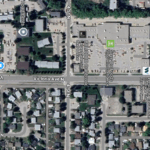Home »

Invermere primed to launch clean energy transition
By Erin Knutson
 The Community Energy Association (CEA) presented to District of Invermere council on the B.C. Energy Step Code and its upcoming execution province-wide Tuesday (Nov. 9).
The Community Energy Association (CEA) presented to District of Invermere council on the B.C. Energy Step Code and its upcoming execution province-wide Tuesday (Nov. 9).
“We are moving from the planning phase of reclaiming energy and emissions to implementation. Our main goal is to support local government through coaching, education, planning support, and application as a not-for-profit,” said CEA Director of Strategic Initiatives Megan Lohmann.
Preparing building officials for the changes in building codes is part of the initiative that Lohmann’s team has been instrumental in providing across B.C.
Through workshops, training sessions, and community outreach, including retrofit and new building science for the updated code slated to come into effect December 2022 with the subsequent B.C. Building Code update, Invermere is well on track to meet the requirements.
“The code will require that every new home is constructed better than the current code requires – most builders exceed the base code – it’s not stringent,” said Lohmann.
In 2022, every new home will also have to be energy modelled.
“It’s a benefit to residents because you have a building that has been constructed as intended and will perform as intended, so across the East Kootenay, local governments have chosen to adopt the B.C. Step Code Early,” she said.
According to Lohmann’s report, many local builders are already constructing at a higher level than their Lower Mainland counterparts due to the colder climate.
“Residents wouldn’t be happy if they were living in leaky homes – it’s an excellent foundation to start with preparing for step code implementation. We’ve also been working closely with energy advisors across East Kootenays, and there is a substantial amount of leadership in high-performance construction in Invermere to present provincially,” said Lohmann.
Communities throughout the East Kootenay have already embraced the B.C. Energy Step Code, including Sparwood and Elkford, followed by Kimberley, Cranbrook, and Regional District of East Kootenay for the electoral areas.
“Most of the local governments in the region are referencing the step code. Most are at Step 2 and 3 already – Kimberley is at step 4, exceeding that elevated base building code,” said Lohmann.
 Lohmann recommended that the District of Invermere adopt the B.C. Energy Step Code ahead of the policy change at the provincial level to support builders and to create a one-year time frame to ease the transition.
Lohmann recommended that the District of Invermere adopt the B.C. Energy Step Code ahead of the policy change at the provincial level to support builders and to create a one-year time frame to ease the transition.
CEA is working hard on its Tri-Regional initiative to prepare the Kootenays for a clean energy transition.
“Things are moving fast and furious across the province to move away from fossil fuel. We want to support homeowners with the transition as well as contractors, and we’re doing it through education, capacity building, and market transformation,” said CEA Climate Initiatives Specialist Jessica Martin-Thompson.
As a new era for local government climate action, Invermere is in an excellent position to meet targets.
“I’m excited about the leadership that’s happening in Invermere. We are just being able to pull in all the builders doing such progressive work to presentations and workshops we’re hosting all over the province of B.C. It has certainly put Invermere more on the map. Congratulations to the district, and thank you for supporting that,” said Martin-Thompson.
e-KNOW







